Global Impact
In 2012, we started campaigning against microbeads. Since then, the BTMB campaign has successfully raised awareness, not only about microbeads but also on microplastics in general through reaching out to brands, governments and people on a large scale!
One of the earliest accomplishments of the BTMB campaign was to get the multinational company Unilever to promise to phase out microbeads from their entire product range. In 2013, this promise was also adopted by the biggest personal care & cosmetic brands in the world such as L’Oréal, Colgate-Palmolive, Beiersdorf, Procter & Gamble, and Johnson & Johnson. This move resulted in the removal of microbeads from all rinse-off products under the European Union Ecolabel.
The increased awareness surrounding environmental risks posed by the presence of microbeads in personal care & cosmetics products encouraged both companies and countries to take up stringent measures against microbeads. To date, 448 brands from 119 different manufacturers have promised to remove plastic microbeads from their products. Here are the biggest milestones of steps taken towards banning the sale, production, and import of microbeads.
Argentina will ban microbeads at the end of 2022. It is the first country in South America to do this.
In China, the Production of new cosmetic products containing microbeads is banned in 2020.
In 2020, Ireland banned the production and sale of rinse-off cosmetics and household and industrial cleaning products with plastic microbeads.
The microbead ban in India came into effect.
Italy planned to ban the production and marketing of rinse-off cosmetics products containing microplastics. The ban was enforced on 1 January 2020.
From January 1 2020, Thailand officially banned the use of plastic microbeads in the import, production and sale of cosmetics.
Italy drafts legislation to ban microbeads in rinse-off cosmetics on 1 January 2020. In addition, Italy will be the first country to ban plastic-stemmed cotton buds as of 2019.
India announces a microbead ban which will enter force in 2020.
France introduces a ban on the sale, manufacture and import of rinse-off products on 1st January 2018.
The Canadian ban on microbeads comes into effect on January 1, 2018. The ban affects products that contain microbeads ≤ 5 mm in size, which are often found in bath and body products, skin cleansers, and toothpaste.
Taiwan implements a ban on the import and manufacture of microbeads in rinse-off cosmetics on 1st January 2018.
The proposed UK ban comes into effect. Plastic microbeads can no longer be used in cosmetics and personal care products in the UK.
New Zealand bans the import, manufacture and sale of microbeads in rinse-off cosmetics on 7th June 2018.
Sweden implements a ban on the import and manufacture of microbeads in rinse-off cosmetics on 1 July 2018, along with a sales ban which is to come in effect on January 2019.
Taiwan implements a sales ban on microbeads in rinse-off cosmetics on 1 July 2018.
A microbead ban is proposed in South Africa after microplastic pollution was found in tap water.
From 1 October 2018, the sale or manufacture of cosmetics and cleansing products containing the tiny plastic particles (microbeads) is banned in Northern Ireland.
The New Zealand Minister for the Environment Nick Smith announces a ban on the sale of personal care products containing microbeads as of 1 July 2018.
Taiwan to ban all cosmetic products that contain microbeads from July 2018.
Scotland promises to introduce legislation regulating the use of microbeads.
Legislative bans on microbeads have been proposed in South Korea!
The UK government announced a ban on microbeads by October 2017.
Microbeads will be ditched in Australia as early as in 2017.
Canada signs a nationwide ban on microbeads in personal care products.
California (USA) signs a complete ban on microbeads without loopholes.
Gothenburg (Sweden) bans plastic microbeads.
Obama signs a bill against microbeads in the USA: the Microbead-Free Waters Act.

